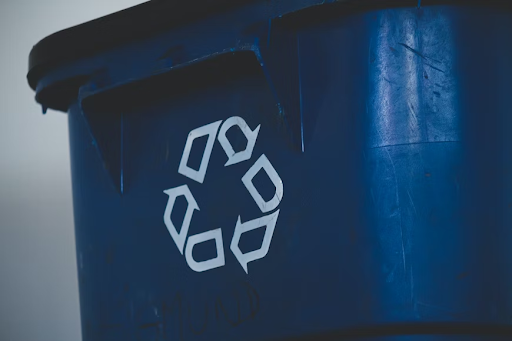
In the global commerce landscape, the recycling industry is emerging as a formidable market force. Once a niche segment relegated to the sidelines of the environmental conversation, recycling is now a pivotal driver of economic growth, technological innovation, and investment opportunity. As the world grapples with the twin challenges of waste management and resource scarcity, recycling stands at the crossroads of ecological necessity and market potential. Keep reading to venture into the evolution of recycling and its profound implications on the stock market, spotlighting the advancements that are not just reshaping waste management but are also carving out new market frontiers.
Decoding What Is Recycling and Its Market Implications
At its core, when we ask, “What is recycling?” We are referring to converting waste into new materials and objects—an endeavor that has become increasingly sophisticated over time, including upcycling from old t-shirts. This transformative industry challenges our understanding of waste, turning what was once discarded into valuable commodities. Beyond its environmental benefits, recycling is a burgeoning economic segment that draws the attention of savvy investors and market strategists.
Recycling does more than just repurposed materials; it fuels a circular economy that underpins significant market growth. As a sector, it’s a space where environmental goods are transformed into economic assets, creating jobs, propelling innovations, and driving competitive advantages for companies that invest in sustainable practices. Companies incorporating recycled materials into their production processes can often reap cost benefits, translating into more favorable financial statements and attracting investor interest. The regulatory landscape is increasingly favoring recycling initiatives. Governments worldwide are imposing strict waste management protocols and setting ambitious recycling targets, pushing companies to innovate in this area. This regulatory momentum is creating fertile ground for investments in recycling technologies and services, which, in turn, is stimulating the proliferation of green stocks and funds. As sustainability becomes embedded in corporate governance, recycling stands at the forefront of a new market narrative—one that harmonizes profitability with planet stewardship. It’s not just about managing waste anymore; it’s about creating value and tapping into new market potential.
Sorting Robot Technology—The New Vanguard of Recycling Markets
Sorting robots, sophisticated machines powered by artificial intelligence and machine learning, are the vanguard of a technological revolution in waste management. Sorting robots are swiftly becoming the linchpins of recycling facilities, capable of streamlining operations, enhancing efficiency, and reducing costs—a triad that resonates powerfully with market observers and investors alike.
These robotic systems are designed to identify, sort, and process recyclable materials at a pace and precision surpassing human capabilities. Their deployment in recycling operations translates into lower processing costs, higher material recovery rates, and improved quality of the recycled output—all of which contribute to a more robust bottom line for companies employing this technology. The ripple effects of sorting robot technology on the market are manifold.
They represent a growing sector for investment as the demand for more efficient waste management solutions surges globally. Companies that develop and manufacture these robots are drawing the attention of investors keen to capitalize on the future of recycling. The use of robots in recycling introduces significant cost savings and operational efficiencies for waste management companies, which can lead to increased margins and profitability. This financial performance boost is not lost on stock market enthusiasts, who seek companies with a competitive edge. The data generated by a sorting robot offer valuable insights into waste management trends, which can influence market forecasts and strategies. This data is a goldmine for analysts seeking to understand the intricacies of the recycling market and to identify the next big investment opportunities.
The Ripple Effects of Recycling Innovation on Markets
As we examine the scope of recycling’s impact, it becomes apparent that the industry’s innovation extends beyond the sorting robot. Expanding recycling capabilities, particularly in electronic waste, creates a subsector ripe for investment. With the proliferation of gadgets and the consequent electronic waste, recycling not only mitigates environmental harm but also recovers precious metals that are in high demand for new technologies. This has introduced a new asset class to the market, with e-waste recycling stocks showing promise as a smart portfolio addition. The surge in consumer awareness regarding sustainability is recalibrating brand strategies. Companies that champion recycling are gaining consumer favor, leading to enhanced brand loyalty and increased shareholder value. As more consumers vote with their wallets for environmentally conscious companies, recycling is becoming not just a corporate social responsibility initiative but a pivotal component of brand equity.
The growth in the recycling sector is inspiring the creation of green financial products such as sustainability-linked bonds and ESG (Environmental, Social, and Governance) funds. These products often offer attractive returns while also contributing to positive environmental outcomes, thereby appealing to a growing demographic of socially responsible investors. The ripple effects of these advancements are manifold, from catalyzing the creation of secondary markets for recycled materials to influencing commodity prices and providing a buffer against the volatility of raw material markets. The enhanced predictability of supply chains fortified by recycled inputs can lead to more stable stock performances for the companies involved, which is a reassuring signal for investors.
Recycling is no longer just a sector within the green market—it’s a dynamic market influencer that commands attention from investors, corporations, and policy-makers alike. As the world continues to seek sustainable solutions, recycling is a testament to the potential of combining ecological stewardship with economic viability. For the astute market observer, the message is clear: the recycling revolution is not just about adapting to a green future—it’s about driving it forward, one sorted item at a time.
Interesting Related Article: “Four Benefits of Recycling for Businesses“

